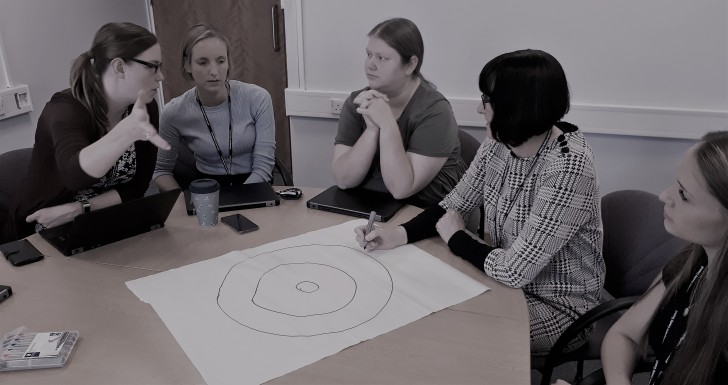Consolidating the future of the NHS
Consolidating the future of the NHS
The NHS England planning guidance was published at the end of March, and the key word in the document is…

Emily Gutteridge is Senior Transformation Advisor at Cambridgeshire County Council
A year ago, I was one of a number of Cambridgeshire County Council colleagues who were invited to IMPOWER’s offices for a classroom style workshop on EDGEWORK – a framework and way to think about complex change. We came away thinking that applying this approach could enable us to drive savings and most importantly deliver better outcomes for people within Cambridgeshire and Peterborough.
It was also a little daunting – we would need to be engaging council staff using Inventive Methods such as ‘Holding up the Mirror’, to try and solve a very real problem of increased demand and pressure on adult social care. But we were enthusiastic and ready to embrace a new approach.
A year on and my particular journey within the Technology Enabled Care (TEC) service has incorporated various elements of EDGEWORK into our practice, with tangible results. These include:
Going forward, reviewing the demand analysis to ensure the programme of work is keeping up with the changing external factors, and we are monitoring using the Trajectory Management approach to ensure that the outcomes we wish to achieve are maximised.
What EDGEWORK hasn’t been is a rigid set of guidelines, enforced to create change, but a way of working with IMPOWER, social care staff and the public to embed real change that will stick.
As we move into the next cycle with our business planning and the IMPOWER role adapts as the programme matures, I am looking forward to reflecting further on what we have learnt and how these methods will help us face inevitable ongoing transformation in the adult’s world and public sector more widely.
The learning that myself, Transformation colleagues and ASC have taken from IMPOWER will now filter beyond the Adults directorate to create an organisation that is more equipped to tackle complex social issues.
